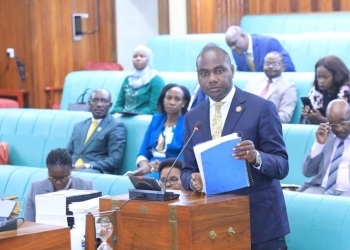
Parliament has imposed a tax on companies reporting losses for more than seven years with 50 per cent of the losses carried forward now being subject to tax in new amendments to the Income Tax Act.
During the House sitting on Tuesday, 11 July 2023, Members of Parliament created a middle ground of seven years abandoning the government’s earlier suggestion to tax losses carried forward in five years.
MPs added section 38(5) (a) of the Income Tax Act which imposed the tax.
“Notwithstanding the provisions of this section, a taxpayer who after a period of seven years of income carries forward assessed losses shall only be allowed a deduction of 50 per cent of the loss carried forward at the beginning of the following year of income in determining the taxpayer’s chargeable income in the subsequent years of income,” it reads.
The Chairperson of the Committee on Finance, Hon. Amos Kankunda said the move will capture potential taxpayers who use losses as a getaway from taxation, cheating the country.
“…the amendment is intended to limit the avoidance of payment of corporation tax by taking advantage of the current provision of the law which allows businesses to carry forward all tax losses indefinitely and without any restriction,” he said.
Kankunda said genuine businesses operating on losses will not fall prey to the new law.
“…the proposal will not affect any genuine business person because the law will allow 100 per cent carry forward of losses for seven years then 50 per cent thereafter. This is in addition to all the allowable deductions and capital deductions provided under the Income Tax Act; citizens have the benefit of 10-year tax holiday under section 21 of the Income Tax Act,” he said.
Hon. Nathan Nandala Mafabi (FDC, Budadiri West) opposed the amendment, saying it will drive businesses to closure.
“A business will make a trading profit as per accounting standards and even pay dividends but will make a taxable loss due to taxable allowances like capital deductions,” he said.
As an alternative, Nandala Mafabi asked MPs to equip the Uganda Revenue Authority with means to audit and specifically hunt down the tax evaders.
“URA should intensify tax audits to confirm the right values of investments; this can be done by values already in their books in World Customs Organisation in Brussels,” he said.
Digital service providers will also have to part with taxes, with MPs amending the law to tax non-resident service providers in the online realm.
The Minister of State for Finance (General Duties), Hon. Henry Musasizi defended the levy.
“We are not looking at the digital services; we are looking at the income derived by the provider of these services. For Uber, the money goes to California; the man derives income, but pays no taxes. Now we are saying, can we have a mechanism of having the taxes?” he said.
Bujagali Hydropower Project, too, gets a tax waiver for another year, awaiting audit and renegotiation of the contract as directed by Parliament.
The Income Tax Act was reprocessed following its return by President Yoweri Museveni last month.













